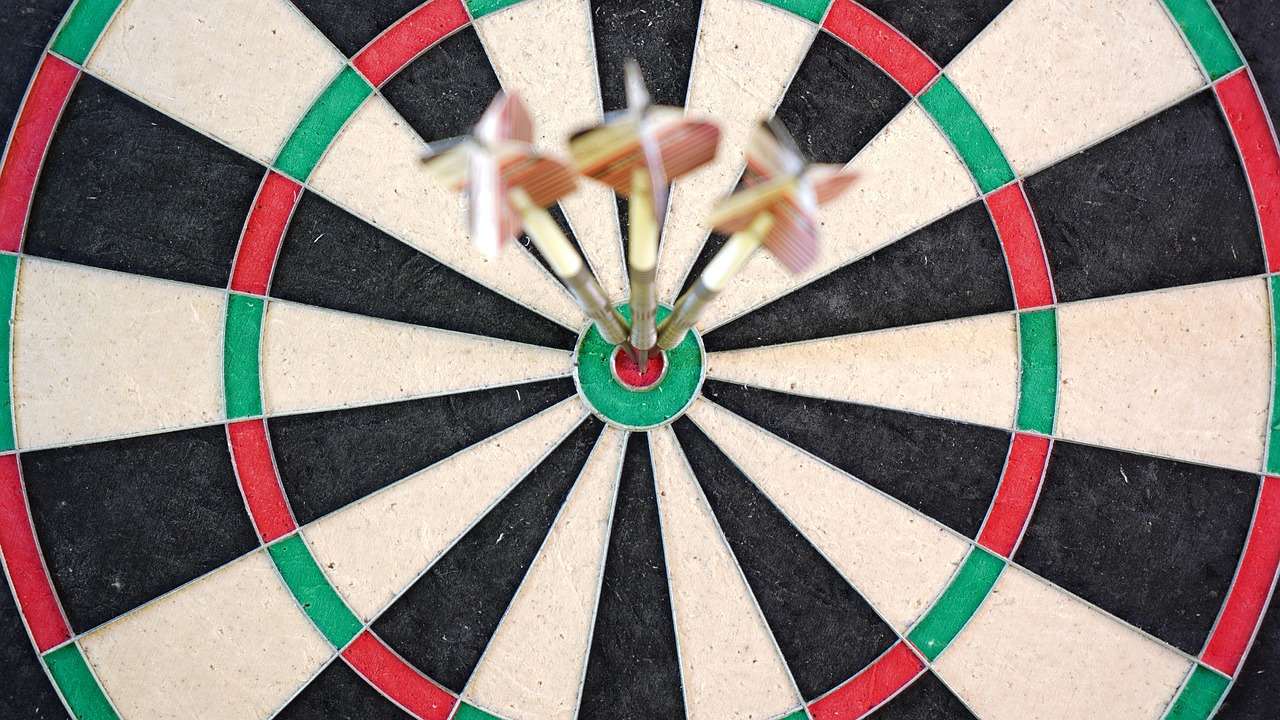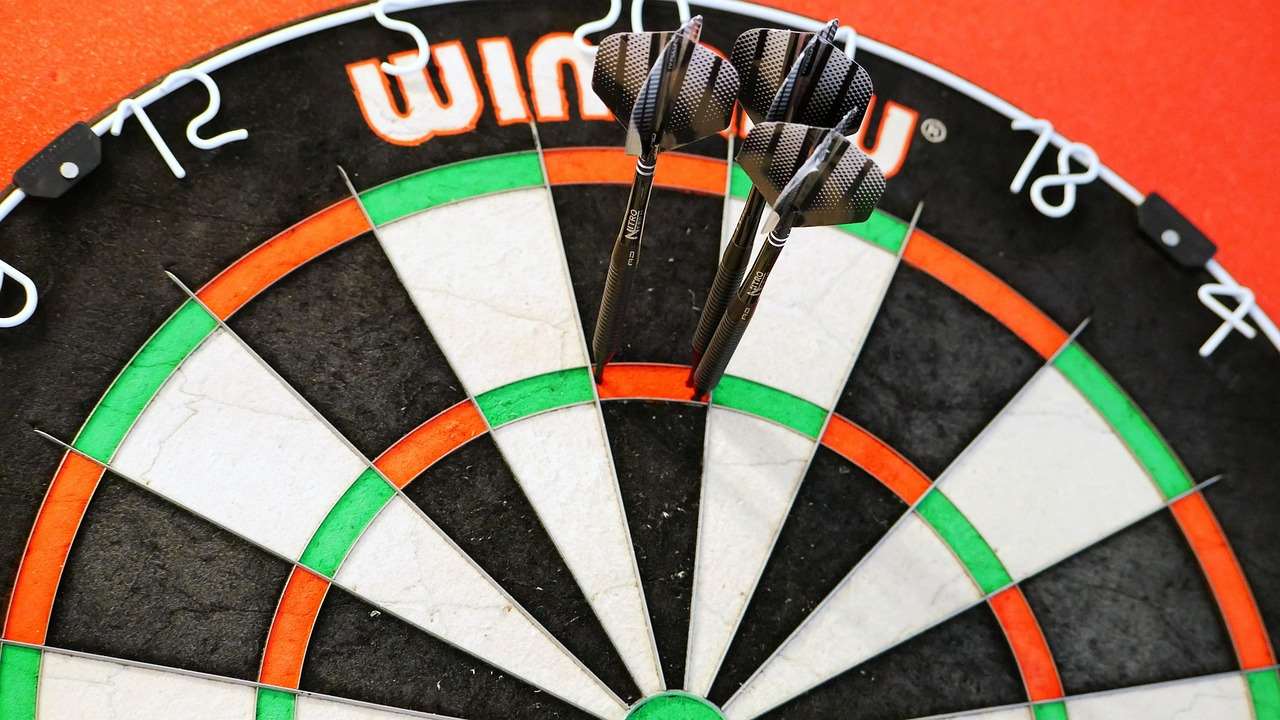This General fitness for dart players guide will show you how improving your physical condition can significantly enhance your dart game. We’ll cover essential fitness components and provide practical advice to help you boost your performance and reduce injury risk. You’ll also learn about training techniques, recovery methods, and lifestyle adjustments for optimal results.
⚠️ Still Using Pen & Paper (or a Chalkboard)?! ⚠️
Step into the future! The Dart Counter App handles all the scoring, suggests checkouts, and tracks your stats automatically. It's easier than you think!
Try the Smart Dart Counter App FREE!Ready for an upgrade? Click above!
Let’s start by addressing a common misconception: darts isn’t just about arm strength. While a steady hand is crucial, overall fitness plays a far bigger role than most realize. A General fitness for dart players guide needs to encompass more than just throwing practice. It’s about building the stamina to maintain focus and precision over extended periods, especially during tournaments. 
General Fitness for Dart Players Guide: Building a Solid Foundation
Your journey towards improved dart performance begins with building a solid foundation of general fitness. This isn’t about becoming a bodybuilder; it’s about optimizing your physical capabilities to benefit your game. We’ll break down key areas:
Strength Training for Darts
Focus on exercises that improve core strength, shoulder stability, and upper body control. These areas directly impact your throwing technique and accuracy. Consider incorporating exercises such as:
- Plank variations
- Push-ups
- Rows (dumbbells or resistance bands)
- Rotator cuff exercises
Remember, consistency is key. Start with manageable weights or resistance and gradually increase intensity over time. Proper form is paramount to prevent injuries and maximize results. A well-structured routine that targets these muscle groups will not only enhance your dart-throwing technique but also contribute to better overall posture and stability, which are vital factors for consistent performance.
Cardiovascular Health and Stamina
While darts itself isn’t high-intensity cardio, maintaining cardiovascular fitness is important. Long tournament sessions can be mentally and physically draining, and strong cardiovascular fitness helps you stay focused and alert for extended periods. Include activities like:
- Running or jogging
- Swimming
- Cycling
- Brisk walking
These exercises will also assist in stress management and reduce the risk of fatigue-related issues, allowing you to stay composed and make accurate throws even under pressure. Remember to also focus on Fatigue management strategies darts.
A key element often overlooked in a General fitness for dart players guide is the importance of adequate sleep. This is particularly important for tournaments where maintaining a sharp focus is critical for success. A good sleep schedule contributes to better reaction time and overall game performance. Ensure you are getting sufficient, quality sleep in line with sleep for tournament play recommendations.

Flexibility and Mobility
Improving flexibility and mobility can also make a difference. Tight muscles can affect your throwing technique, leading to inaccuracy and discomfort. Incorporate stretching and mobility exercises into your routine to maintain suppleness in your shoulders, back, and arms. This is particularly important if you sit for long periods working at a computer, reducing the impact on your eye care for digital screens darts. Remember to also check our guide on Darts Fitness Health.
Specific Training Techniques for Dart Players
While general fitness is crucial, there are specific training techniques to improve your dart game. For example, focusing on your mental game can significantly impact your performance, and this is something we cover in Breathing and mental game in darts. It details how mindfulness and controlled breathing can assist in your game.
Throwing Practice and Technique
Consistent throwing practice is essential, but it’s important to avoid repetitive strain injuries. Focus on maintaining a consistent and fluid throwing motion. Video recording your throws can help identify areas for improvement. Consider consulting a professional coach to refine your technique and ensure you’re not developing any bad habits that could lead to injuries. This also ties in with dart injury prevention tutorial.
Mental Fitness and Focus
Darts is as much a mental game as a physical one. Maintaining focus and managing stress are crucial for consistent performance. Techniques like mindfulness meditation, deep breathing exercises, or visualization can help improve concentration and mental resilience. It is highly recommended to incorporate the Breathing techniques for dart players tips into your daily routine for optimal performance.
Nutrition and Hydration
Maintaining a healthy diet and staying properly hydrated is crucial for optimal performance. Fuel your body with nutrient-rich foods to provide sustained energy throughout your practice and games. Drinking plenty of water helps maintain focus and prevents fatigue. Consider a healthy lifestyle as highlighted in Healthy lifestyle for dart player development.
Recovery and Injury Prevention
Rest and recovery are as important as training. Allow your body adequate time to recover between practice sessions to avoid overtraining and injury. Incorporate active recovery methods like light stretching or walking. Addressing issues such as posture and ergonomics at the oche are essential; you can learn more on this through our Ergonomics at oche guide. Listen to your body and don’t push through pain.
Stretching and Mobility Work
Regular stretching and mobility exercises help prevent injuries and improve flexibility. Target areas like your shoulders, back, and wrists, which are heavily used during dart throwing. Consider also checking our guide on Oche ergonomics for recreational-play.

Addressing Potential Injuries
Common dart-related injuries include wrist pain, shoulder strain, and back problems. If you experience any pain or discomfort, consult a healthcare professional or physical therapist. Early intervention is key to preventing more serious issues. Following these recommendations contained in this General fitness for dart players guide will go a long way to reducing injury risk.
Lifestyle Adjustments for Enhanced Performance
Making positive lifestyle adjustments beyond your training regimen can further enhance your dart performance. This includes prioritizing sleep, managing stress levels, and fostering a healthy work-life balance. These elements are all interconnected and contribute to peak performance. For instance, maintaining a healthy lifestyle can improve focus and mental clarity, which are vital for the game.

Conclusion: Your Personalized General Fitness for Dart Players Guide
This General fitness for dart players guide emphasizes that optimal dart performance requires a holistic approach. By incorporating strength training, cardiovascular exercise, flexibility work, mental training, proper nutrition, and adequate recovery, you can significantly improve your game. Remember, consistency is key. Start with manageable goals, gradually increase the intensity of your training, and listen to your body. With dedicated effort and a strategic approach to your fitness, you’ll see tangible improvements in your accuracy, consistency, and overall enjoyment of the game. Begin your journey towards becoming a more competitive and injury-free dart player today! Remember to consult a healthcare professional or certified trainer before starting any new exercise program.
Finally, for further support and to discover even more targeted strategies, make sure to explore our comprehensive resources on Fitness for endurance events darts.
Hi, I’m Dieter, and I created Dartcounter (Dartcounterapp.com). My motivation wasn’t being a darts expert – quite the opposite! When I first started playing, I loved the game but found keeping accurate scores and tracking stats difficult and distracting.
I figured I couldn’t be the only one struggling with this. So, I decided to build a solution: an easy-to-use application that everyone, no matter their experience level, could use to manage scoring effortlessly.
My goal for Dartcounter was simple: let the app handle the numbers – the scoring, the averages, the stats, even checkout suggestions – so players could focus purely on their throw and enjoying the game. It began as a way to solve my own beginner’s problem, and I’m thrilled it has grown into a helpful tool for the wider darts community.